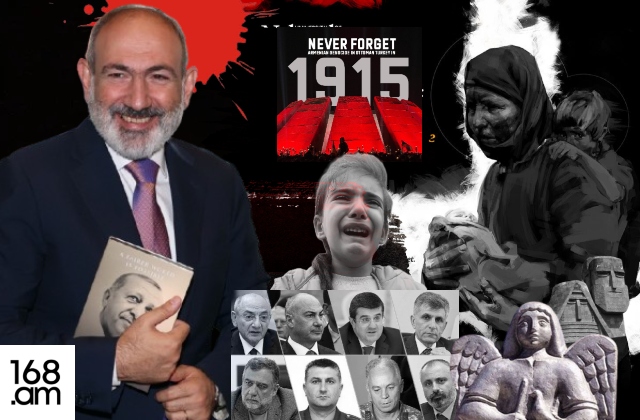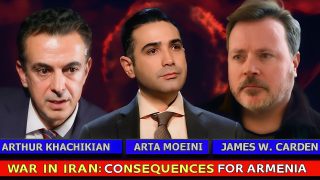KARNIG KERKONIAN, A RENOWNED INTERNATIONAL ATTORNEY, DETAILS THE SINISTER MOTIVES BEHIND BAKU’S SHAM TRIALS AND AZERBAIJAN’S RELENTLESS CAMPAIGN TO ERASE ARTSAKH. HE STRONGLY URGES GLOBAL ACTION AGAINST AZERBAIJANI AGGRESSION
Dr. Arthur Khachikian, Stanford Doctor in Political Science talked with Karnig Kerkonian, an international lawyer and lead counsel in several precedent-setting Armenian rights matters in U.S. and international courts, a Partner of Kerkonian Dajani LLP. He educated at Harvard, Cambridge, and the University of Chicago.
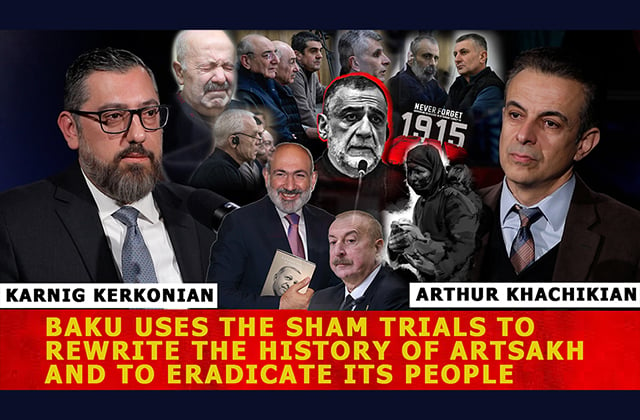
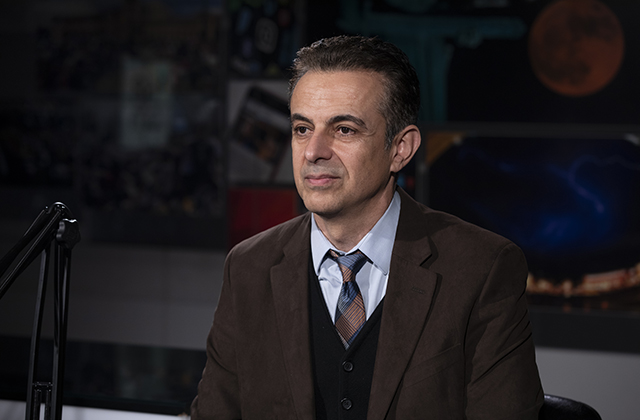
During the interview, they discussed the sham trials currently taking place in Baku, Ruben Vardanyan’s hunger strike, the demands and objectives of Azerbaijan and Turkey, as well as the concessionary policies of the Armenian authorities. Below are Karnig Kerkonian’s remarks on these topics:
-We should not dissolve our efforts to secure the right of return for the Artsakh people. One of the main reasons why we shouldn’t is that within the year and a half since September 23rd, the legal justification for their return has been embedded in international instruments, decisions of the European Parliament, decisions of the International Court of Justice, in particular on the right for a safe and dignified return. So we have a lot of the substantive legal bases to effectuate that return, which means leaving your cards on the table and walking away is worse than appeasement. It’s really kind of a turning your back on what the rule of law in the international legal system says.
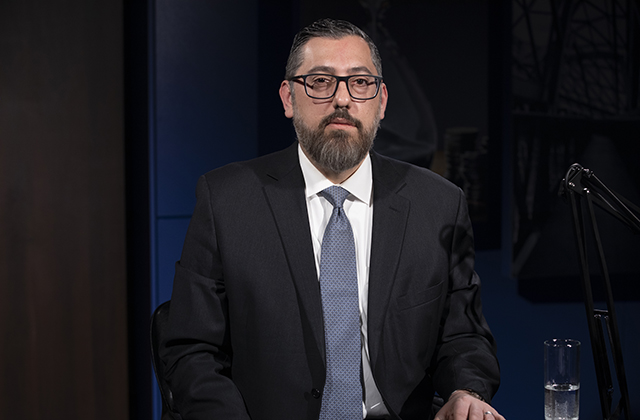
-The key is to translate those legal decisions and legal markers into diplomatic and geopolitical victories. The weakness that we have right now is in that translation. The basis of the right of return is there. We’ve underlined a number of very key pillars: One is that the return needs to be collective. The second, based on the fact that we see the rhetoric of genocidal intent coming from Baku, is that that must be under international security guarantees. And the third is that the people have to be able to return with their fundamental human rights, which include the right to life and the right to self-determination.
-We hear from Azerbaijan the rhetoric of Western Azerbaijan, of their return to Western Azerbaijan, and their publication of maps that disclose Armenian cities with Azerbaijani names. This is an indication of the mental state and the intent that’s coming out of Baku. If you don’t set up obstacles further away from home camp, you’re going to be dealing with those threats inside our own borders, which is exactly what we’re experiencing right now.
–We should believe our own national narratives, we can’t let others write our narratives for us, it doesn’t make sense. We need to write our own stories based on our own history. Our heads have been turned 180 degrees when we hear discussions about Genocide denial or questioning denial. It does not fit our story, that is a red flag to say something else is happening here to influence discourse.
–We can’t change our history, we can’t pretend that the churches in Ani are not Armenian, we can’t pretend that Ghazanchetsots is not Armenian. That is an intentionally propagated false parallelism to say that acknowledging Armenian historical heritage and Armenia’s presence in those areas is not a declaration of war, that is a reality. The states around us need to understand that reality.
-Turkey and Azerbaijan are in the midst of creating a national identity, which is why we should be in the midst of preserving our national identity, which is coming into direct conflict with the idea of Turkic nationalism, Turkic identity, and which is creating a real kind of friction, a brackish water moment for us. But the solution is not to say, we just won’t talk about that anymore, we’ll pretend that doesn’t exist. The most extreme example of that is in terms of not discussing the reality and the fact of the Armenian Genocide or questioning it, which not only imposes historical problems or national identity problems, it really imposes a lack of understanding as to what’s happening right now. From a historical perspective, in three or four hundred years when historians write about this moment, there is going to be no difference between what happened in 1915 and what happened in 2023. This is going to be one moment in history. It’s going to be one page in history and it’s all going to be linked to one another.
-The fact that we refuse to acknowledge Turkey’s role in the war of Artsakh and the aftermath, Turkey’s role in the present pressure being applied to Armenia and Armenian identity, and the kind of disjunction that’s trying to be created between the real Armenia and the Armenians in Armenia that exist outside the borders, is an attempt at dismantling national identity, dismantling the Armenian diaspora and its relationship with Artsakh and with Armenia at a moment when Turkey and Azerbaijan are doing just the opposite. Azerbaijan today funds the creation of an Azerbaijani diaspora, whether it’s in Europe, the United States, or elsewhere. They’re actually actively creating one.
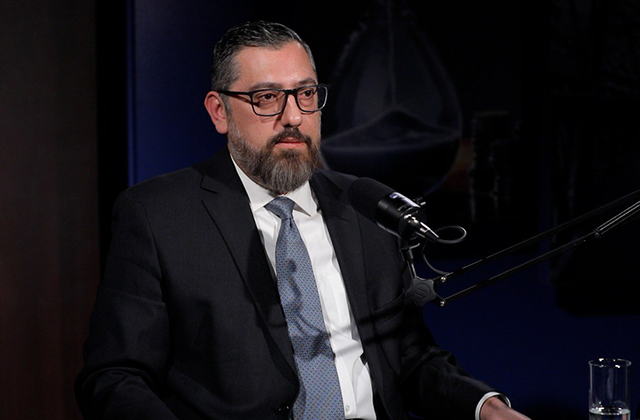
-Why would Turkey and Azerbaijan be attacking the diaspora institutions and narrative? They’re attacking it because they see it as a challenge to what they’re trying to do within this region. And they’ve made some significant inroads in that. I mean, geopolitically they’ve made inroads, territorially they’ve made some inroads. It’s impossible to look at the map of the region right now and not see the fact of what that last chapter is supposed to look like for them.
-I don’t think we can look at the sham trials in Baku outside the context of the greater picture here because this is an express attempt to change the narrative: The idea that Armenians are terrorists and not indigenous natives of Artsakh seeking self-determination. This is the underlying story that is being pushed under the rug. That is exactly what the trials are doing. It is not just a matter of human rights. And I think it’s really important to remember. It’s not just a matter of human rights. It’s not even a matter of a right to a fair trial. That’s an important concern but it’s not the elephant in the room. The elephant in the room is that they’re using the sham trials in the shade of this idea of these Nuremberg trials type thing that they’re bringing people to justice to further the issue change the story of what Artsakh is, to change the 4 thousand-year-old indigenous presence, or probably even more, I am not a historian, and eliminate Artsakh people as a people with the right to self-determination.
-There’s nothing wrong with demanding international cases be integrated into a peace treaty as opposed to being set aside for the purpose of a peace treaty. No country in the world is going to say that Armenia’s position is unrealistic if it were to demand that a just and dignified peace treaty include the decisions of the International Court of Justice. That makes sense. That’s what a just peace is. And if you don’t have a just peace, what you end up with is the, you end up with the Treaty of Versailles. You’re going to create a situation in Armenia where the, where there’s been, there is so much oppression, where there is, in terms of national identity and so much indignity, that you’re going to have a complete 180 turn. This is something that I speak to often in Europe and the United States with respect to Armenia, if you really want to protect democracy, the pushing of narratives that further subjugate the Armenian state and the idea of national identity at some point are going to be so indignified that you’re going to have a backlash. And that backlash is not going to look like a democratic transition of power.
-We should pressure the international world and our counterpart at the table to integrate the decisions and rulings of the International Court of Justice into the peace treaty, which includes the right of return, which includes the opening of the Lachin Corridor in both directions for cargo, for civilians. These are rules that are in effect right now. We can’t abandon those. We can’t. Why would we abandon them? It doesn’t even make sense to abandon them. Because if you make the arguments and if you push the advocacy for those points on the basis that it’s not only my desire to have that, but it’s what the world order requires. I mean, that’s what the ICJ is there to say. This is what’s fair and just. And so a just peace has to be based on justice. And I think Azerbaijan’s fear is that, or its objective is that it not be based on justice, but be based on subjugation and further oppression. And those are taking very different dimensions, whether it’s sham trials, whether it’s military inside the Armenian borders, whether it’s demands with respect to the Armenian constitution and the Declaration of Independence. These are concerted efforts to change the identity, understanding, and national fabric of what it means to be an Armenian.
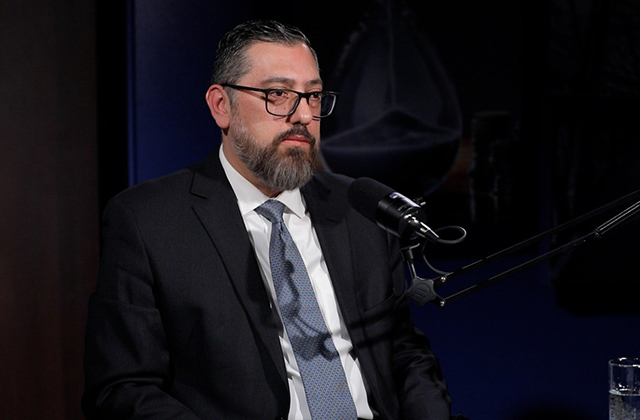
-The pressure should be really twofold. One is continued ongoing pressure on international institutions and other state players, which has been happening in terms of a global response to political prisoner Ruben Vardanyan’s hunger strike. But there is also the really important element of pressure being put on the official Yerevan to start speaking on that issue.
-It’s a hunger strike in really brutal conditions. And we can’t forget that every single day. We can’t forget that that’s what’s happening. And that’s happening not just to Ruben Vardanyan and the other prisoners. It’s attacking the very fabric of what it means to be an Armenian. And this is where the second element of pressure is extremely important. It needs to be targeted against the Armenian government to speak- not only symbolically but in an aggressive sense and to constantly speak on this issue.
-No matter how much the outside Armenian world speaks on a particular issue when you have the Armenian government not speaking on that issue, it causes an obstacle. If you don’t want to even consider it in the large perspective of what’s actually happening systemically, but from a human perspective, the government has an obligation to speak, and an obligation to speak loudly on this issue. Because without the government’s voice, doors will not be able to be opened. The government should also be speaking very prominently on this issue because it can open up doors to foreign capitals to put pressure on Baku to remediate the situation.
